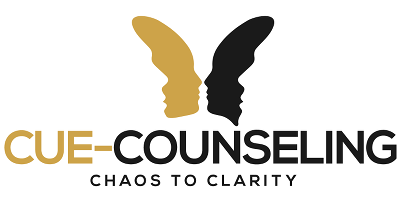Mental Health in Times of Crisis – Corona Recovery focus on Mental Health
We know that many people currently facing the Corona Crisis are challenged in so many ways. Whether the dealing with Corona, or the devastation of a tornado or hurricane, or the unknown of a recession, mental health is often the last thing to be addressed.
We stopped in to chat with Deborah Boynton of Cue Counseling to discuss what she was experiencing with her sessions. She also shares the top things she recommends while people are cooped up to hopefully return to a sense of control.
The Main Problem: Lack of Control and Derail of Plans
We usually go through life without much of a problem. We feel a sense of control. That sense of control gives us the perception that our plans are on track. We are usually in a happier mood when we feel our plans are on track.
When a crisis hits, our plans are shaken. We lose our sense of control. This triggers a deep sense of instability, insecurity.
That is when our unique personalities kick into high gear. All manner of coping mechanisms begins to express themselves. As each coping mechanism succeeds or fails, our mood improves or worsens.
This is the core cause of depression during a crisis.
The Top Ways to Regain a Sense of Control
To be a leader in our families, businesses, and communities, we need to be in a state of mind to help and serve in times of crisis. Here are the top ways that Deborah and the team at Cue Counseling help folks regain a sense of control in a crisis.
1.) Breathe
Taking a deep breath almost immediately calms the body and mind. The “Relaxation Response” is triggered, which is a level of rest that changes the physical and emotional responses to stress. It decreases in heart rate, blood pressure, rate of breathing, and muscle tension.
2.) Exercise
Do a quick set of push-ups, sit-ups, squats, or jumping jacks. This will increase the heart rate, add blood flow to the mind, and level set our heart rate.
Psychologically, it allows the body to feel it’s “optionality”; that you are not trapped and have options to correct the stressful situation. This brings additional clarity to your thinking.
3.) Nutrition
Stress eating is a real thing! Higher cortisol levels can lead to craving carbs or fats. If one is breathing, that can reduce cortisol. If one is exercising, that can use up the stress hormones in the body.
But one can also eat for calm and clarity! The mind-gut connect is well established today. Consider limiting excessive caffeine. Intentionally reduce unhealthy sugars. Increase your vegetable intake.
Even consider fasting (with your doctor’s guidance, of course) for mental clarity!
4.) Fact Check
Programming yourself to do the first three steps above are helpful on their own. But the real win is that they prepare you to do the thing you should be doing in the first place; fact-checking.
Most stress causes us to draw conclusions about our futures that may be more based on conjecture than fact.
If you are mentally prepared to look at the facts with a calm mind, you will be more likely to come up with a plan (and its resulting sense of control). You will be more likely to feel that you will come out of the situation better for it.
Original Article by, State of the Spark
